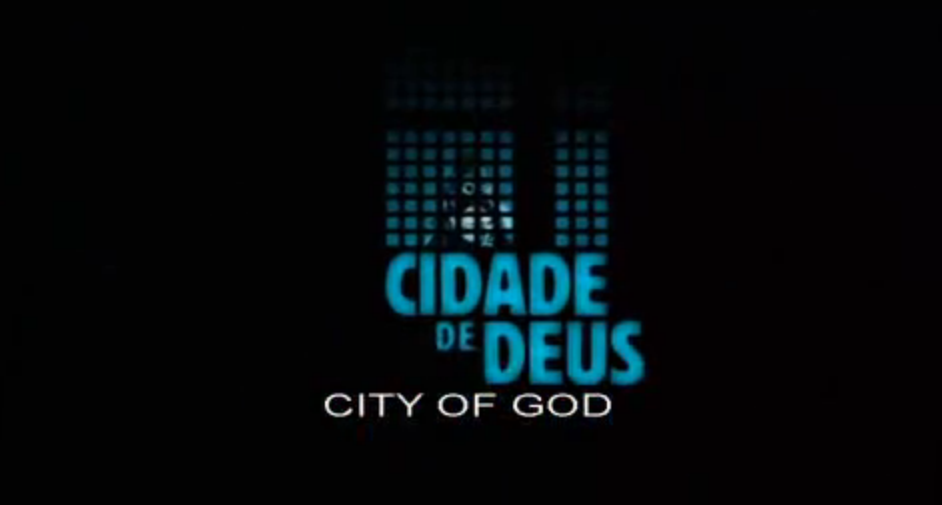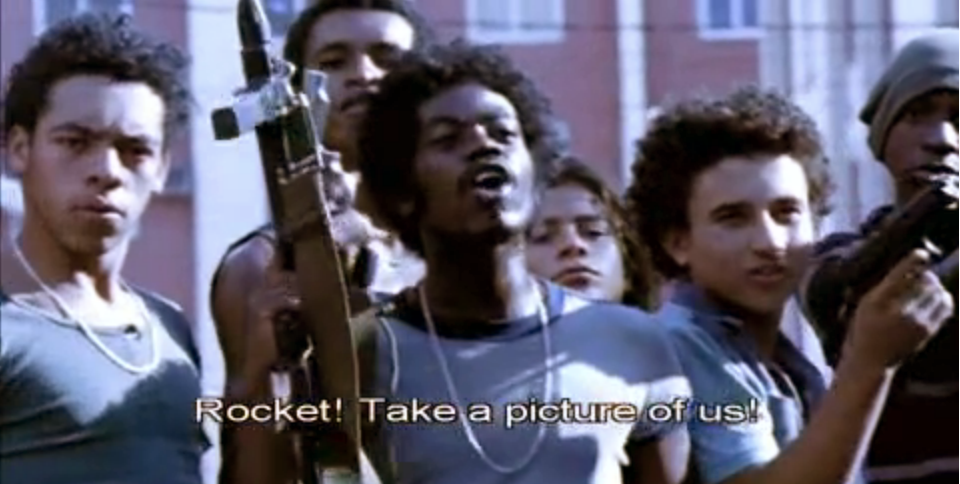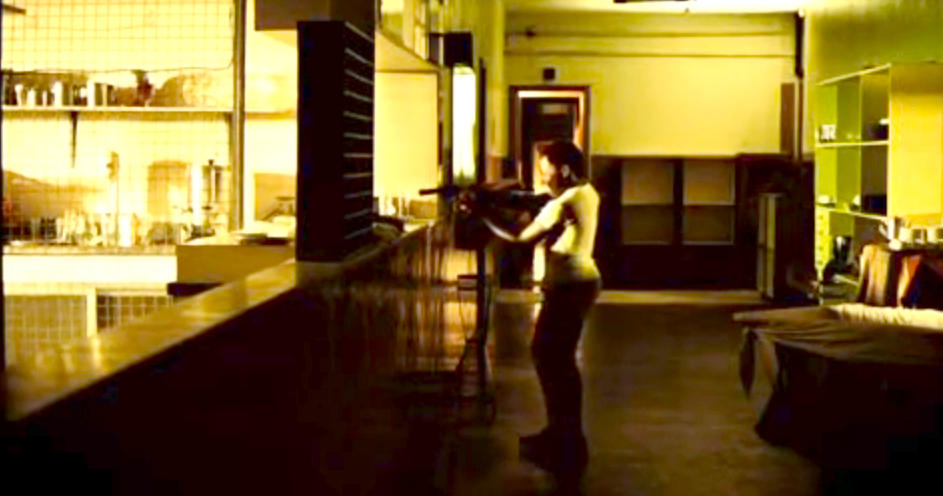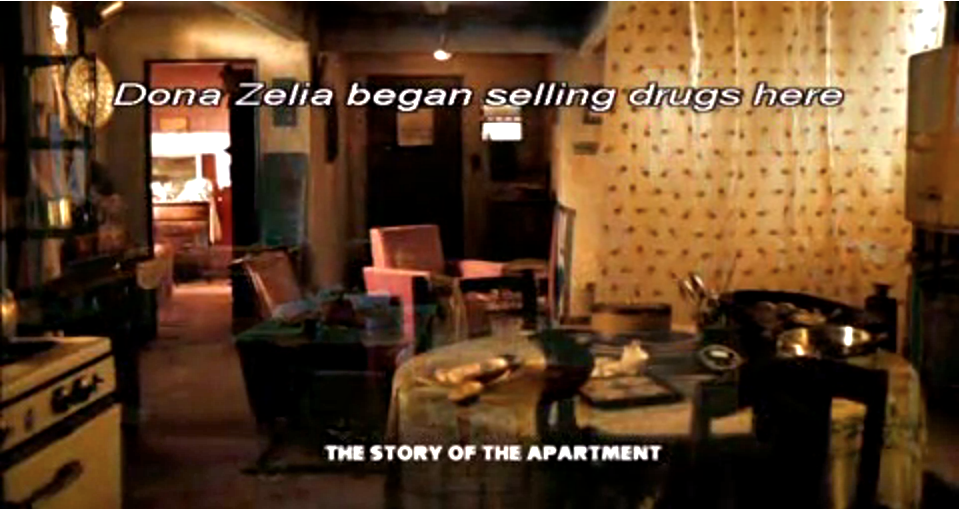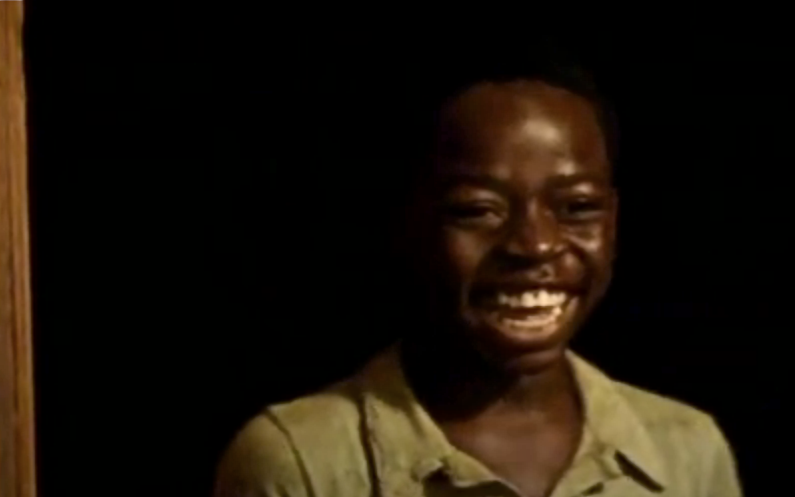BUY FROM AMAZON: CLICK HERE!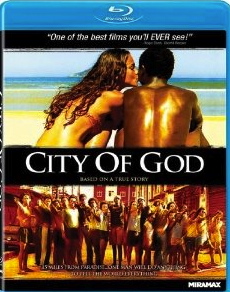
STUDIO: Lion’s Gate
MSRP: $19.99
RATED: R
RUNNING TIME: 130-minutes
SPECIAL FEATURES:
- “News from a Personal War” documentary
The Pitch
A whirlwind look at a crime syndicate run by teenagers living in a slum of Rio de Janeiro.
The Humans
Alexandre Rodrigues as Rocket, Leandro Firmino as Li’l Zé, Phellipe Haagensen as Bené, Alice Braga as Angélica, and Seu Jorge as Knockout Ned
The Nutshell
City of God is a ferocious film that often shocks the viewer with its entertaining and engrossing look at violence, nhilism, and social mobility.
The Lowdown
Part Pulp Fiction, part Godfather, City of God establishes a purely modern filmmaking style for the gangster picture without resorting to glamorization or cynicism. Director Fernando Meirelles’s lightning fast approach to editing and his incredibly versitile and fluid camera movements make the winding streets of the City of God, the Rio de Janero slum where the film is set, come alive. Appropriately, he populates the film with complicated and interesting characters, who’s plight seems so realistic, it should come as no surprise that their story is true.
City of God lays out the expansion of organized crime in the slum through an objective lens. As seen through the eyes of a teenage photographer named Rocket, Meirelles takes the audience from the humble beginnings of smalltime theft to grand killings done in cold blood. Growing up scared and a bit desensitized, Rocket witnesses horrors on a massive scale, watching his family and friends fall unknowingly into throws of drugs and violence.
Rocket isn’t necessarily our main character, though; the film mainly dictates the rise of Li’l Zé, a prominent drug lord, who got his start around the age of nine. Never properly socialized, Li’l Zé knows nothing but extremes. For love, he rapes. For money, he kills. For friends, he uses. A true movie villain if there ever was one, Li’l Zé is also a child, and his crimes are the product of a life in the dog-eat-dog slums. Characters turn from monsters and animals to grander in a grander scheme of corruption and poverty. The director’s intense depiction of them, as both children and pawns, puts a sympathetic lens on their morally corrupt lives.
Li’l Zé provides the film with both its backbone and energy. His unpredictability gives the film a charge that’s reflected in the music, performances, and editing. Meirelles shifts his timeline around, stopping to give history of people and places, building a mythology and adding dimensions to his world, in a manner of seconds. He fills in the details through highly stylized and incredibly engrossing montages that show the history of an apartment, in one instance, and the continuum of drug lords in an another. Laying the groundwork early, Meirelles doesn’t forget how the smallest moment or the most insignificant character can have an impact in the city. Covering all his bases, Meirelles is able to plow through 20 years of violence without missing a beat, keeping his film charged with enough energy and sympathy to keep his audience emotionally invested in these characters.
Meirelles cuts quick and fills his film with enough information to keep us digging, making his film as entertaining as it is horrific. This isn’t some slasher movie technique, where the characters are made so woefully incompetent that we root for the killer. Instead, all of the director’s movements are made to draw us in closer. He keeps his film moving like a music video to keep us entertained, and he gets us. Hook, line, and sinker. City of God runs through the streets, gathering as much information and suspense as it can, before erupting in a barrage of bullets and fire. The shots are close and the settings constrained, keeping the audience on its toes and hoping the film would last just another ten minutes.
The film’s entertainment does come at a price. What City of God tells is a story of true crime. Its entertaining shell is used as a method of attraction, but the movie within is not for the faint of heart. The violence, which spans from armed robbery to rape to cold blooded murder, is almost entirely committed by children and teenagers. In their eyes, Meirelles shows their innocence and confusion, reminding the film just how young these characters are. They’re coming of age in a cruel, unforgiving world. In return, they experience similar growing pains, except with a gun in their hand.
City of God is one of the most entertaining, enthralling, and gut wrenching films of the past decade, and its influence and reward continue. With cool, violent characters straight of classic crime cinema, an original look and narrative style, the film makes for an enthralling and horrific movie experience. Through it all, Merielles doesn’t forget to remind you that just because these kids are desensitized, that doesn’t mean you should be, too.
The Package
City of God comes with one special feature, the “News from a Personal War” documentary. This isn’t nearly as entertaining as the film, but it is incredibly revealing, acting as another reminder of how real the story is. The doc, which primarily looks at the gang relations, brings the police into the equation. Locals of the area talk about the battle between police and cartel, who claim to be in an ongoing war to protect the area from an overly violent police force. “News from a Personal War” helps fill in some holes that movie may have grazed over. Definitely essential viewing for fans, which should be everyone, because this movie is the best .
Rating: 




Out of a Possible 5 Stars
